
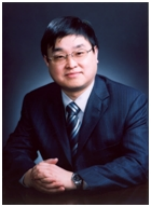
Prof. Zijian Guo
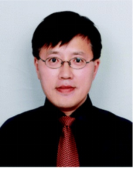
Prof. Zong-Wan Mao
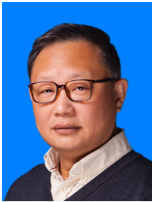
Prof. Xiaoda Yang
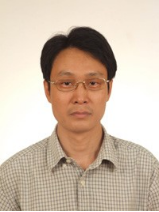
Prof. Weijiang He
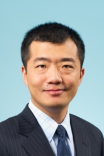
Prof. Guangyu Zhu
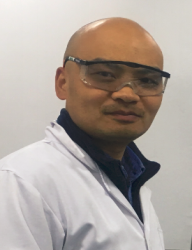
Prof. Wukun Liu
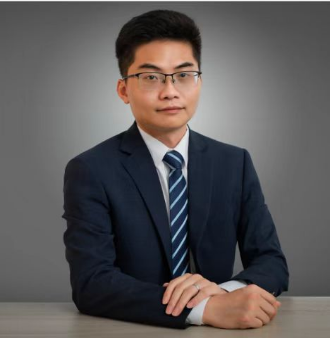
Prof. Huaiyi Huang
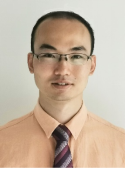
Prof. Wei Xia
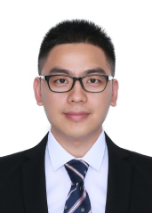
Prof. Yuncong Chen
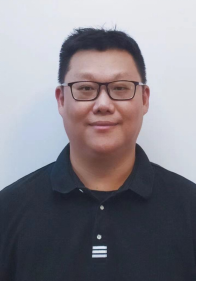
Prof. Yu Chen
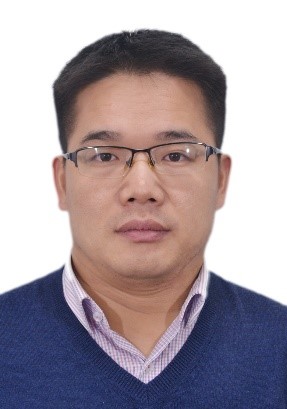
Prof. Ke-Bin Huang

Prof. Hong Liang

Zijian Guo
Professor
Biography
Prof. Zijian Guo received his PhD degree from the University of Padova and
worked as a postdoctoral research fellow at Birkbeck College, the University of
London. He worked also as a research associate at the University of Edinburgh.
He joined the School of Chemistry and Chemical Engineering at Nanjing University
as a professor of chemistry in 1999, where he served as the director of the
State Key Laboratory of Coordination Chemistry from 2000 to 2009 and the dean of
the School of Chemistry and Chemical Engineering from 2006 to 2014. He received
the national science fund for distinguished young scholars in 1999. He is the
Changjiang Professor in the same school. He founded Chemistry and Biomedicine
Innovation Center (ChemBIC) in Nanjing University and served as the director
since 2019. He was elected as the Fellow of the Chinese Academy of Sciences in
2017. He served as an associated Editor for Coord. Chem. Rev. He has authored or
co-authored more than 400 peer-reviewed articles on basic and applied research
topics, with a primary focus on fluorescent probes, chemical biology of metals,
and metal complex-based antitumor drugs.

Zong-Wan Mao
Professor
Biography
Prof. Zong-Wan Mao earned his Bachelor’s degree at Sichuan University in 1982,
and received his M.S. and Ph.D. degrees from Nanjing University under the
supervision of Prof. Wen-Xia Tang in 1991 and 1994, respectively. Then he joined
Prof. Liang-Nian Ji’s group as a postdoctoral fellow at Sun Yat-Sen University.
Two years later he received an Alexander von Humboldt Fellowship, and studied
with Prof. Rudi van Eldik at University of Erlangen-Nuremberg, Germany. He was
appointed as an associate professor at Sun Yat-Sen University in 1999, and was
promoted to full professor in 2004. He is also the fellow of the Royal Society
of Chemistry (FRSC). He has published more than 260 papers in J. Am. Chem. Soc.,
Angew. Chem. Int. Ed., Nat. Commun., Nucleic Acids Res., Adv. Sci., Chem. Sci.
and so on. His current research interests include metal drugs, molecule probe
and biological image, chemical biology of metal ions and metalloenzyme
chemistry.
For over 30 years, Prof. Liang has taken up a systematic and
innovational research in the field of Inorganic Biochemistry and Inorganic
Medicinal Chemistry, making three important contributions to development of
Chinese Inorganic Chemistry including 1. Opening up the new research field
of TCMAI-based (Traditional Chinese medicine’s active ingredient) inorganic
medicinal chemistry; 2. Enriching and expanding the field of HSA-based
inorganic biochemistry; 3. Making a high achievement in the field of
bio-nano-material chemistry and functional metal complex.

Xiaoda Yang
Professor
Biography
Prof. Xiaoda Yang received his B.S, M.S. and Ph.D. degrees at Peking University
under the supervision of Prof. Yunxiang Ci finally in 1994. Then he joined Prof.
Kui Wang’s group as a postdoctoral fellow at Beijing Medical University. Two
years later he studied with Prof. Ronald T. Borchardt at the University of
Kansas, USA. He was appointed as an associate professor at Sun Yat-Sen
University in 2000, and was promoted to full professor in 2003. He has published
more than 150 papers in Adv.Mater., Adv. Func. Mater., Anal. Chem.,
Biochemistry, SCI. CHINA. and so on. His current research interests focus on the
molecular mechanisms of pharmacological and/or toxicological actions of metal
ions for discovery of inorganic drugs

Weijiang He
Professor
Biography
Prof. Weijiang He was born in Jiangsu, China in 1969. He received his PhD
degree in chemistry from Nanjing University in 2001. After a one year stay as a
postdoc in the Max-Planck Institute of Colloids and Interfaces at Potsdam, he
joined Nanjing University in 2003 as an associate professor and was promoted to
full professor in 2009. His research interests include the fluorescent sensing
and imaging of bioinorganic species, photoactive agents, and luminescent
materials. He has published nearly 100 papers in internationally renowned
academic journals including J. Am. Chem. Soc.; Angew. Chem. Int. Ed.; ACS Nano,
Chem. Commun.; Chem. Sci. He has been invited to write molecular imaging reviews
and special chapters for the Chem. Soc. Rev and Elsevier series.

Guangyu Zhu
Professor
Biography
Prof. Guangyu Zhu is an Associate Professor at the Department of Chemistry,
City University of Hong Kong. Prof. Zhu’s research interest lies at the
interface of chemistry and biology, focusing on anticancer drug development and
mechanism. His current research projects include development of photoactivatable
anticancer prodrugs, synthesis and biological evaluation of novel metal-based
anticancer agents, and development of cancer-specific nanomedicine to conquer
cisplatin resistance. His research work has been published in Nature series,
Chem, JACS, Angew, PNAS, etc. Currently he is the Editorial Advisory Board
member of the Journal of Biological Inorganic Chemistry, member of Asian
Biological Inorganic Chemistry (AsBIC) Steering Committee, and member of Chinese
Chemical Society Young Chemists Committee.

Wukun Liu
Professor
Nanjing University of Chinese Medicine
Inorganic Biochemistry and Inorganic Medicinal Chemistry
Biography
Prof. Wukun Liu was born in 1982 in Hunan, China. He received his PhD from the
Free
University of Berlin (2012) under the supervision of Prof. Ronald Gust and
carried
out postdoctoral research at Johns Hopkins University in Prof. Jun O. Liu’s
laboratory. In 2017, he began his independent career at Nanjing University of
Chinese Medicine, Nanjing, China. His current research interests are mainly
focused
on medicinal inorganic chemistry, particularly in the design, synthesis and
mechanism study of gold(I/III))- and platinum(II)-based anticancer drugs.
5 Key Recent Publications
-
Yunlong Lu, Xiaoyan Ma, Xingyu Chang, Zhenlin Liang, Lin Lv, Min Shan, Qiuyue Lu, Zhenfan Wen, Ronald Gust*, Wukun Liu*.Recent development of gold(I) and gold(III) complexes as therapeutic agents for cancer diseases.Chemical Society Reviews 2022, 51, 5518-5556.
-
Sai Zhao, Zhibing Yang, Guizhi Jiang, Sheng Huang, Mianli Bian, Yunlong Lu, Wukun Liu*.An overview of anticancer platinum N-heterocyclic carbene complexes.Coordination Chemistry Reviews 2021 449, 214217.
-
Zhibin Yang#, Sheng Huang#, Yu Liu, Xingyu Chang, Xi Li, Zhongren Xu, Shiyu Wang, Yuan Liu*, Wukun Liu*.Biotin-targeted Au(I) radiosensitizer for cancer synergistic therapy by intervening redox homeostasis and inducing ferroptosis.Journal of Medicinal Chemistry 2022, 65(12), 8401-8415.
-
Mianli Bian, Rong Fan, Zhibin Yang, Yanan Chen, Zhongren Xu, Yunlong Lu, Wukun Liu*.Pt(II)-NHC complex induces ROS-ERS related DAMPs balance to harness immunogenic cell death in hepatocellular carcinoma.Journal of Medicinal Chemistry 2022, 65(3), 1848-1866.
-
Mianli Bian#, Rong Fan#, Guizhi Jiang, Yingxiang Wang, Yunlong Lu, Wukun Liu*.Halo and pseudohalo gold(I)-NHC complexes derived from 4,5-diarylimidazoles with excellent in vitro and in vivo anticancer activity against HCC.Journal of Medicinal Chemistry 2020, 63(17), 9197-9211.
Info
Nanjing University of Chinese Medicine
Email: liuwukun0000@hotmail.com

Huaiyi Huang
Professor
Biography
Huaiyi Huang received his BSc (2011) and DPhil (2016) at Sun Yat-Sen University
(China). In 2015, he became a joint PhD student in Prof. Gilles Gasser’s group
at
the University of Zurich, Switzerland. After that, he was awarded a Newton
International Fellowship to carry out research in Prof. Peter J. Sadler’s group
at
the University of Warwick.
He now is an associate professor at Sun Yat-sen University. His
research focuses on the biological application of metallic photoredox catalysts
via
the excited state single electron transfer mechanism. Several series of high
efficient coenzyme photocatalysts to combat hypoxic and drug-resistant cancer
cells.
He has published 30 papers as first or corresponding authors in Nat.
Chem.,Angew.
Chem. Int. Ed., Coord. Chem. Rev., Biomaterials, et al with a H-index of 29.

Wei Xia
Professor
Sun Yat-sen University
Biography
Prof. Wei Xia received his bachelor’s degree in biochemistry from Peking
University
in 2006 and Ph. D. in chemical biology from the University of Hong Kong in 2011.
Then he joined Prof. Timothy A. Springer’s lab as a postdoctoral fellow at
Harvard
Medical School in Boston. After three years of training, he began as an
Associate
Professor at Sun Yat-sen University in 2014. He was promoted to a full professor
in
2022. He has published a series of papers in J. Am. Chem. Soc., Angew. Chem.
Int.
Ed., Proc. Natl. Acad. Sci. USA, Chem. Sci. and so on. Prof. Xia was awarded the
2020 National Science Fund for Excellent Young Scholars for his achievements in
the
research area of metalloproteins. His current research interests include the
inorganic chemical biology of metalloproteins, organometallic anticancer and
antimicrobial agents.
Info
School of Chemistry, Sun Yat-sen University
Email: xiawei5@mail.sysu.edu.cn

Yuncong Chen
Professor
Biography
Prof. Yuncong Chen, graduated from Nanjing University in 2008 with a BS degree,
and got his PhD from NJU in 2014. From August 2014 to July 2018, he did his
postdoctoral research at HKUST. Since September 2018, he joined School of
Chemistry and Chemical Engineering of Nanjing University as an associate
professor. He has published more than 70 peer-reviewed papers, including Chem.
Soc. Rev., Nat. Commun., J. Am. Chem. Soc., Angew. Chem. Int. Ed., Adv. Mater.,
Mater. Horiz., ACS Nano. His research interest include fluorescence imaging of
biological species and microenvironments, smart photo-theranostics agents. He
received the National Natural Science Foundation of China Excellent Youth Fund
in 2021. He is currently serve as a member of the Young Editorial committee of
Exploration.

Yu Chen
Professor
Sun Yat-Sen University
Biography
Yu Chen was born in Feb 1983. He is an associate professor in the School of
Chemistry at Sun Yat-Sen University. He received his doctor’s degree in chemical
biology from Sun Yat-Sen University in 2010 with Prof. Liangnian Ji and Prof.
Hui Chao. During 2010-2014, he conducted postdoctoral work in the School of Life
Sciences at Sun Yat-Sen University with Prof. Anlong Xu. His current research
interest is precision chemical intervention in cancer. He focused on using metal
complexes as building blocks to achieve microenvironment response, light-driven
therapy, and drug-resistant tumour suppression. He is the author of about 80 SCI
publications (including Coord. Chem. Rev., Angew. Chem. Int. Ed., Biomaterials)
with an H-index of 39.
Info
Associate Professor, School of Chemistry, Sun Yat-Sen University
Email: chenyu63@mail.sysu.edu.cn

Hong Liang
Professor
Guangxi Normal University
Inorganic Biochemistry and Inorganic Medicinal Chemistry
Biography
Prof. Hong Liang has devoted himself to Chemistry research and teaching in
western China since he got his doctoral degree in Nankai University in 1991.
In scientific research, he has so far led more than 30 projects and
programs, including one Key National Natural Science Fund Project, three 973
pre-special programs, and seven National Natural Science Fund Projects.
Among over 400 papers he published in the SCI key journals like Nat.
Commun., Coord. Chem. Rev., JACS, Angew. Chem. Int. Ed., J. Med. Chem.,
Small, Chem. Comm., Eur. Chem. J., Eur. J. Med. Chem.,Mol. Pharm., Inorg.
Chem., Anal. Chem., J. Inorg. Biochem., and his papers have been cited for
about 10,000 times in SCI journals, and H-index is 49. Furthermore, he has
possessed more than 50 authorized invention patents in China. For his
outstanding academic achievements, he was awarded quite a few prizes and
honorary titles, such as, Fellow of Royal Society of Chemistry(FRSC),
Editorial Board Member for Journal of Inorganic Biochemistry(JIB),Journal of
Natural Medicines Research(JNMR), and so on..
For over 30 years, Prof. Liang has taken up a systematic and
innovational research in the field of Inorganic Biochemistry and Inorganic
Medicinal Chemistry, making three important contributions to development of
Chinese Inorganic Chemistry including 1. Opening up the new research field
of TCMAI-based (Traditional Chinese medicine’s active ingredient) inorganic
medicinal chemistry; 2. Enriching and expanding the field of HSA-based
inorganic biochemistry; 3. Making a high achievement in the field of
bio-nano-material chemistry and functional metal complex.
Info
State Key Laboratory for Chemistry and Molecular Engineering of Medicinal
Resource, Guangxi Normal University
Email: hliang@mailbox.gxnu.edu.cn